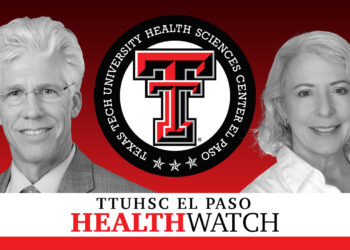
Teenagers’ language might make online bullying hard to detect
Vitapix/Getty Images
Generation Alpha’s internet lingo is mutating faster than teachers, parents and AI models can keep up – potentially exposing youngsters to bullying and grooming that trusted adults and AI-based safety systems simply can’t see.
Manisha Mehta, a 14-year-old student at Warren E Hyde Middle School in Cupertino, California, and Fausto Giunchiglia at the University of Trento, Italy, collated 100 expressions and phrases popular with Generation Alpha – those born between 2010 and 2025 – from popular gaming, social media and video platforms.
The pair then asked 24 volunteers aged between 11 and 14, who were Mehta’s classmates, to analyse the phrases alongside context-specific screenshots. The volunteers explained whether they understood the phrases, in what context they were being used and if that use carried any potential safety concerns or harmful interpretations. They also asked parents, professional moderators and four AI models – GPT-4, Claude, Gemini and Llama 3 – to do the same.
“I’ve always been kind of fascinated by Gen Alpha language, because it’s just so unique, the way things become relevant and lose relevancy so fast, and it’s so rapid,” says Mehta.
Among the Generation Alpha volunteers, 98 per cent understood the basic meaning of the terms, 96 per cent understood the context in which they were used and 92 per cent could detect when they were being deployed to cause harm. But the AI models only recognised harmful use in around 4 in 10 cases – ranging from 32.5 per cent for Llama 3 to 42.3 per cent by Claude. Parents and professional moderators were no better, spotting only around a third of harmful uses.
“I expected a bit more comprehension than we found,” says Mehta. “It was mostly just guesswork on the parents’ side.”
The phrases commonly used by Generation Alpha included some that have double meanings depending on their context. “Let him cook” can be genuine praise in a gaming stream – or a mocking sneer implying someone is talking nonsense. “Kys”, once shorthand for “know yourself”, now reads as “kill yourself” to some. Another phrase that might mask abusive intent is “is it acoustic”, used to ask mockingly if someone is autistic.
“Gen Alpha is very vulnerable online,” says Mehta. “I think it’s really critical that LLMs can at least understand what’s being said, Because AI is going to be more prevalent in the field of content moderation, more and more so in the future.”
“It’s very clear that LLMs are changing the world,” says Giunchiglia. “This is really paradigmatic. I think there are fundamental questions that need to be asked.”
The findings were presented this week at the Association for Computing Machinery Conference on Fairness, Accountability and Transparency in Athens, Greece.
“Empirically, this work indicates what are likely to be big deficiencies in content moderation systems for analysing and protecting younger people in particular,” says Michael Veale at University College London. “Companies and regulators will likely need to pay close attention and react to this to remain above the law in the growing number of jurisdictions with platform laws aimed at protecting younger people.”
Topics:
Source link : https://www.newscientist.com/article/2485808-generation-alphas-coded-language-makes-online-bullying-hard-to-detect/?utm_campaign=RSS%7CNSNS&utm_source=NSNS&utm_medium=RSS&utm_content=home
Author :
Publish date : 2025-06-25 11:48:00
Copyright for syndicated content belongs to the linked Source.













